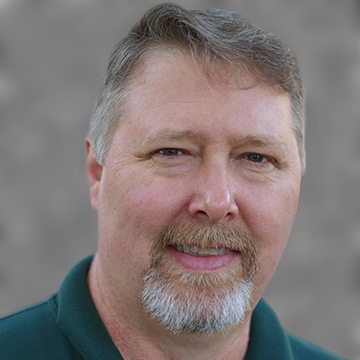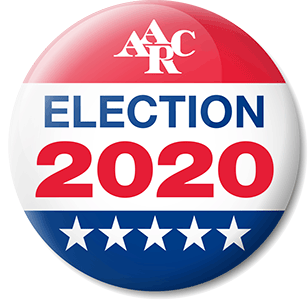Diagnostics Section Chair
Ralph Stumbo, Jr., RRT, CPFT
Pulmonary Function Technologist II
Kaiser Permanente of Washington
Member Since: 2003
AARC Activities:
- AARC Congress presenter 2012–2015
- Open Forum presenter 2016
- Instructor for AARC Spirometry trainings
Affiliate Activities:
- Co-founded the RCSW Diagnostic Section in 2003
- Diagnostic Chair of the RCSW Diagnostic Section 2003–present
- RCSW Diagnostic Section presenter 2012–2018
- TSRC presenter 2016
- SCSRC presenter 2016
Related Organizations:
- NBRC PFT Exam Committee Member 2013–present
- Co-Published: THE IMPACT OF USING NON-BIRTH SEX ON THE INTERPRETATION OF SPIROMETRY DATA IN SUBJECTS WITH AIR-FLOW OBSTRUCTION — Resp Care Nov. 28, 2017
- Washington Academy of Physicians Assistants presenter 2012 & 2014
- Tacoma Community College – RC263 Pulmonary Functions course instructor 2003–2007
- Owner Apex Pulmonary – Instructor : 22 week Advanced Principles of PFTs Course 2014–present
Education:
- Warner Pacific University 1981–1985
- US Army Respiratory Care Specialist Nov 1995–Dec 1996
- Highline Community College RC Advanced Standing Program 1990–1991
Elections Committee Questions:
What experience or significant contributions do you have to offer the AARC which would help accomplish one or more of the AARC Horizon Goals as presented by President Schell?
1) Advocacy: I have participated in the past with establishing licensure for RTs in WA and presently working with the RCSW and the WA DOH to establish RRT as the entry-level credential for licensure. I have also started discussions with DOH about establishing a minimum of an RRT or CPFT/RPFT in order to legally perform full PFT testing in Washington State.
2) Communications/marketing: My past advocacy and support of the RCSW and AARC on a local and regional level can be expanded and duplicated onto a national scale, building both the diagnostic section and the AARC as a whole.
3) Education/professional development: From 2003–2007 I taught the 3 credit Pulmonary Functions course at Tacoma Community College’s RT program. By the time my students finished this 10-week course they had done hundreds of spirometries and spent several days in a full PFT lab. In 2014 I started my own company training people to become highly educated Pulmonary Technologist instead of perpetuating the typical, poorly done OJT. It is the only online course of its kind in the entire country and my graduates go on to become leaders in their labs.
4) Events/Meetings: I have been a presenter at numerous AARC Congresses. For the past 15 years, as RCSW Diagnostic Section Chair I have assembled some of the finest diagnostic presenters in the country for a one-day educational session held in conjunction with the RCSW annual conference.
5) Membership: For many of us membership is important because it is how professionals act and view their profession. Unfortunately for many others, it is simply a job. For these folks, they don’t join because they don’t see the value in being a member. I would build value through various programs in order to help usher these people into the profession. (See my ideas below on membership)
What ideas would you present to increase AARC membership?
Four years ago I presented an idea to the RCSW’s Diagnostic Section sponsors: give more. Each of our sponsors gives an “extra” $75 on top of their sponsorship fee and that money is used to sponsor five AARC Diagnostic Section memberships. To date, we have signed up over 100 NEW diagnostic members. Some people don’t join the AARC because they just don’t see the benefit to them so to increase AARC membership (and their perceived value) I would sponsor/host regional educational opportunities for members only. I would promote it as an “Encore presentation” of diagnostic presenters from the previous AARC Congress. Because it is for members only you are going to attract and retain members who don’t and would never attend a national event.
Role-Specific Questions:
What do you feel are the top two or three opportunities facing your section that you believe should be addressed during your term?
Short term:
1) Increasing the diagnostic section membership to over 1,100 members so that we can gain and maintain a seat on the AARC Board.
2) Develop new and younger leaders by developing diagnostic sections in every state. Mentoring their leaders to become presenters and leaders on the national stage. This can’t be done without local or regional opportunities to develop their skills first.
3) Increasing the number of educational opportunities for our members. Opportunities that not only build knowledge but hands-on opportunities to hone their patient interaction skills.
Long term: As the AARC attempts to move toward APRT those of us in the diagnostic field need to up our game as well so we can do a better job of taking care of our chronic patients. A new credential: Advanced Pulmonary Diagnostic Practitioner (APDP). An APDP works as a physician extender in out-patient clinics to help diagnose, manage and direct treatment of pulmonary disease on par with a PA or ARNP. This is going to require us to develop a new level of educational requirements so that our level of knowledge and skills are similar to those of our colleagues in Europe. It could/would require a BS, RRT, RPFT, AE-C, COPD Ed., and a disease management credential such as the Chronic Care Professional (CCP).







